Reimagining the customer experience for a new world

Customer experience trends have evolved from the older generation of ecommerce sites, and not just because of COVID-19. Customer expectations and needs have been shifting for years, thanks to the ongoing mobile and social revolution.
Marketplace customers want something dynamic and engaging. The stagnant e-commerce experience of the past isn’t enough anymore.
At Sendbird, we’ve noticed three big customer experience trends:
- Conversation
- Community
- Live commerce
Here’s how chat and video are revolutionizing CX inside marketplaces today.
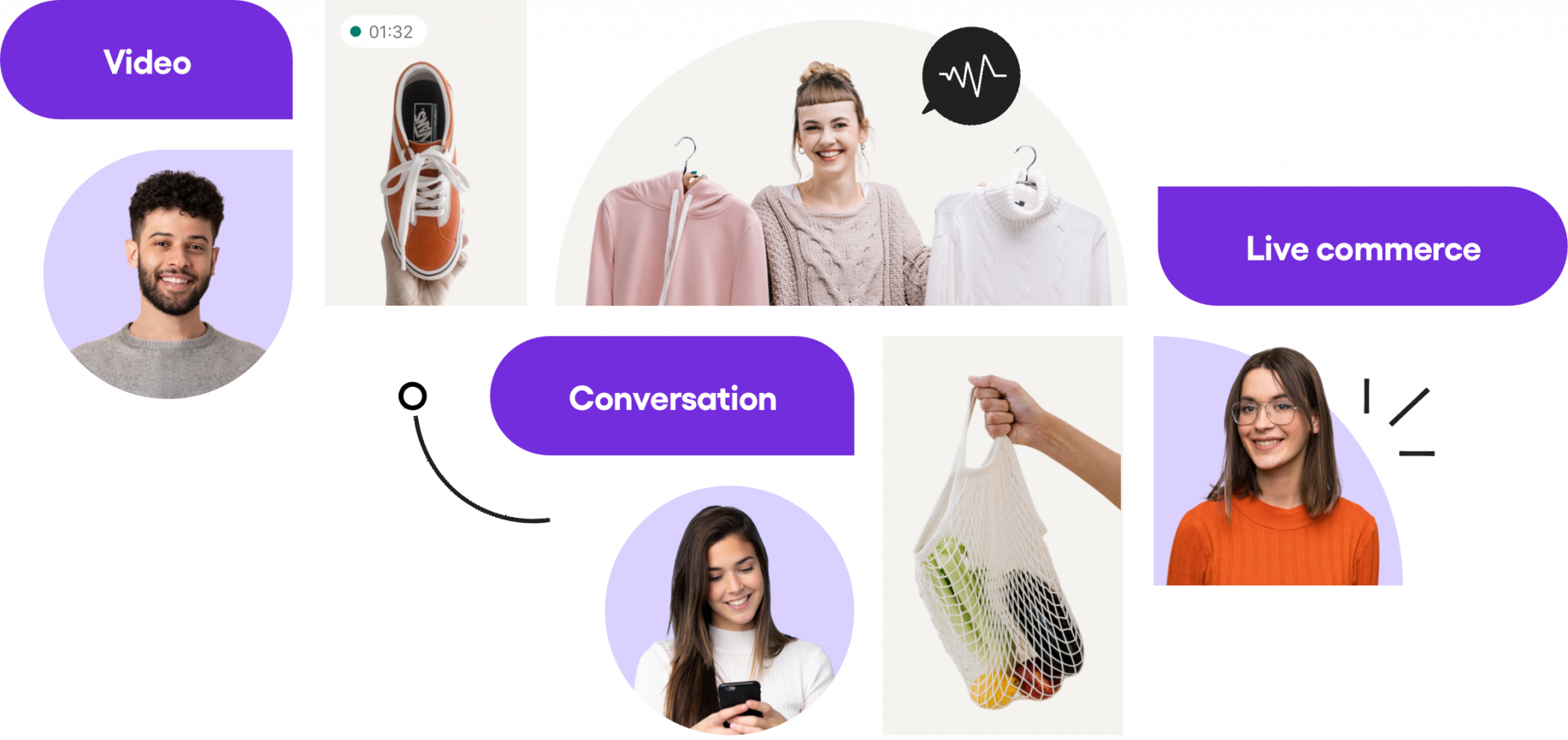
Trend 1: Goodbye traditional e-commerce, hello video-driven commerce
We’re all familiar with traditional e-commerce. Think about Amazon: Many long-standing marketplaces are clunky shops, designed for desktop and search, and created for shopping alone.
They’re static and non-interactive, and it’s not how younger consumers want to shop. These old-style marketplaces aren’t how a modern online store should look and feel.
We’re seeing a shift towards more fun and engaging methods, like using live or pre-recorded video to make online shopping interactive and geared towards discovery.
Marketplaces with engaging videos help cultivate a community and make users want to shop online with friends. This CX trend is turning the traditional static model on its head and transforming the entire customer experience.
While fun, dynamic online shops are already huge in China and India right now, we expect global e-commerce to begin trending this way.
Trend 2: Let the community speak
Let’s talk about the $1.2 billion makeup brand Glossier for a minute. Emily Weiss originally started Glossier as a blog ten years ago. It became super popular, had tons of engagement, and a solid community built around the blog.
She found a way to monetize with makeup and crowd-sourced product ideas from the community she created. Glossier is a stellar example of community driving commerce instead of the other way around.
We’re seeing this customer experience trend more often as brands try to develop these communities and own the conversations, and that extends far beyond the transaction itself. These experiences are highly tailored and very specific to the communities they serve.

Communicate seamlessly with buyers.
Trend 3: Live chat is front and center
WhatsApp just announced a new focus around features for shopping and payments. The platform is investing heavily in e-commerce functionality, including checkout, payments, shopping carts, reviews, etc.
Essentially, all the integrations that are core to the shopping experience will be provided within WhatsApp. It will become the place where you start the conversation, look at products, get support, solicit and give reviews, give and receive payment and more.
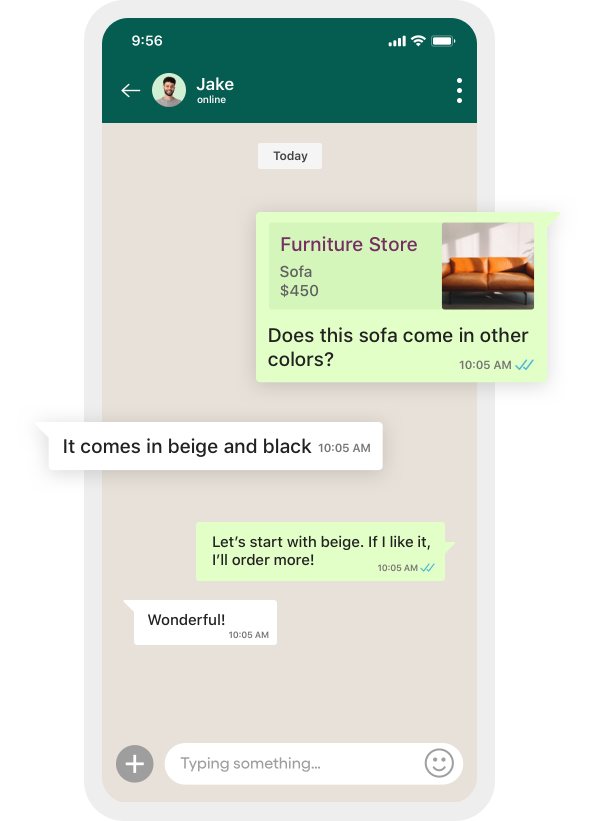
Everything related to the e-commerce experience happens inside the chat. Facebook has recognized that the best way to monetize WhatsApp isn’t with an ad-based model, but with e-commerce.
They realize that if you own the conversation, you own the purchase. If transactions happen within a chat you control, you can take a percentage of that transaction’s profit.
Facebook has realized what we’ve known for a while: Chat is crucial to CX in online marketplaces.
The power behind these customer experience trends
All these new trends require several components to make them work. The fun and engaging videos might require an influencer and a TikTok presence. A community, like Glossier, requires a large amount of content.
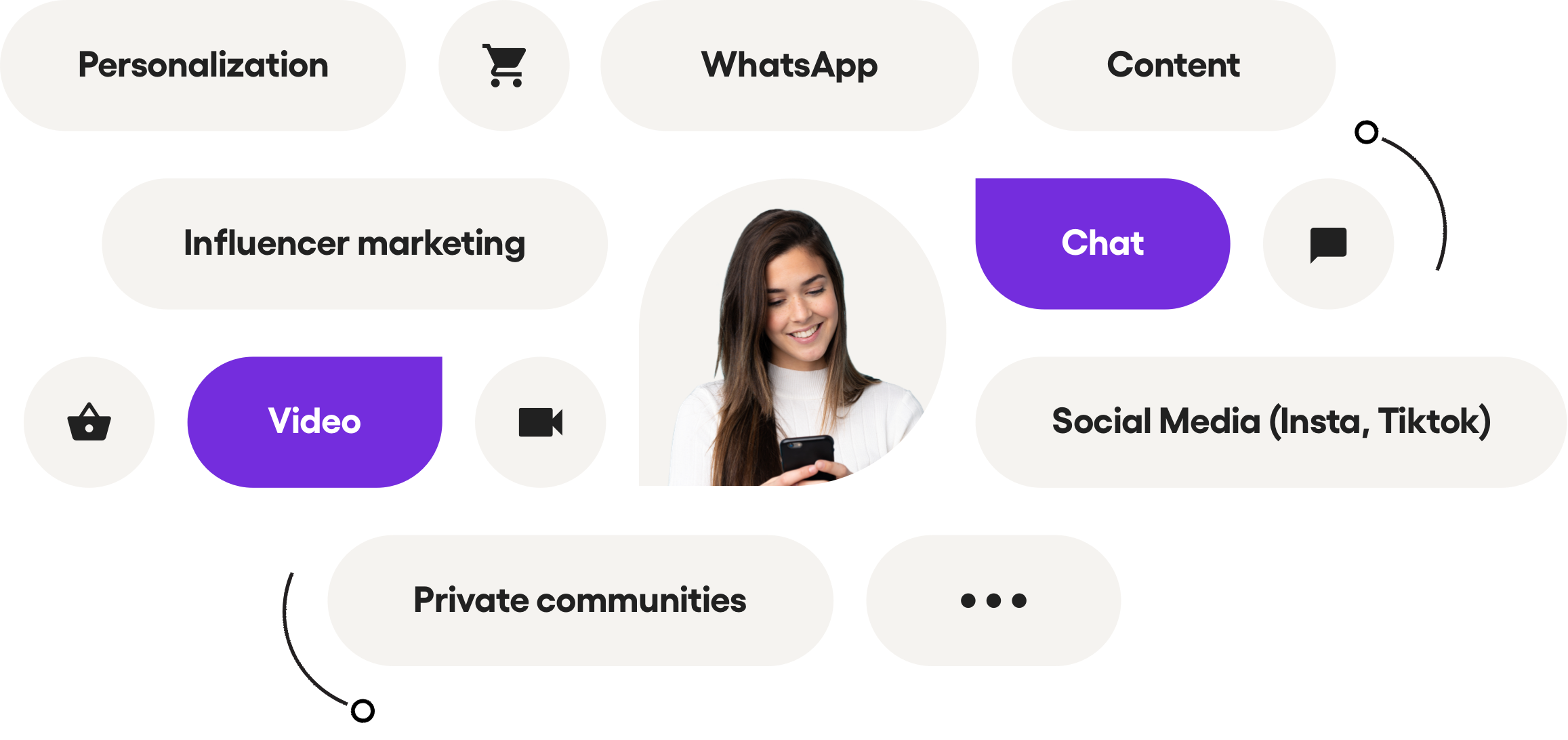
However, two primary technologies power all three of these trends: Chat (or messaging) and video.
Live chat for marketplaces, by the numbers
Five billion people use a messaging application every single month. Two billion are using it daily. It’s the default way we communicate with our friends and family, and foster effective workplace communication. Therefore, it’s no surprise that it’s also the way we want to communicate on marketplaces.
Marketplaces that harness conversations via integrated chat see higher transaction numbers.
Some of Sendbird’s customers who integrated chat as a core part of their marketplace customer experience strategy early on have seen outstanding results:
- TMON, a leading e-commerce site in Korea, has seen a 5X increase in transaction conversion.
- Dubizzle, the largest real-estate marketplace in EMEA, has seen a 51% increase in messaging engagement.
Chat is really about connecting buyers and sellers. It’s about allowing buyers to build that relationship with sellers through a real-time conversation on live chat.
These aren’t the only Sendbird customers who used chat and video to take advantage of the changing CX landscape.
Sendbird’s live chat SDK in action with marketplace customers
Carousell, the largest classifieds marketplace in Singapore, has used Sendbird’s live chat SDK to significantly increase transaction velocity and reduce the risk of people leaving the app to do business off-platform.
Within Carousell, buyers see the “chat” option up front and center as a necessary part of the conversation. They’ve incorporated little details like seeing when a buyer is online, typing indicators, inbox notifications, and read receipts to increase engagement.
Carousell’s chat is built to make the process simple for buyers and sellers, so they don’t leave the platform. Keeping the conversation in the mobile app keeps users from cutting the marketplace out of the transaction and gives them access to tons of analytics for optimizing conversations.
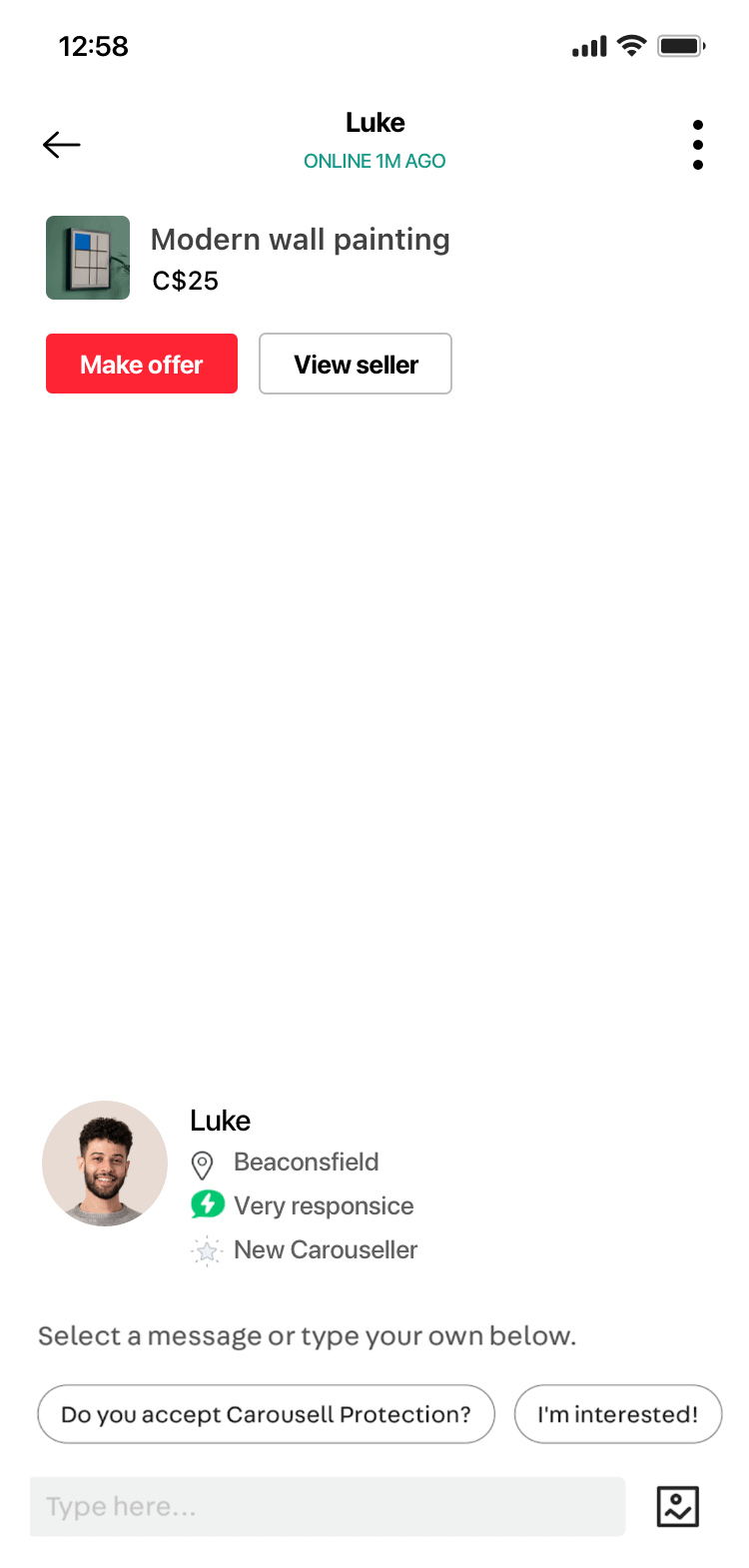
Schibsted, another Sendbird marketplace customer, is part of the largest online classified group in the world. We work primarily with their Swedish marketplace, Blocket.
They use Sendbird chat very similarly to Carousell. For Schibsted, reputation was a top concern with chat. They needed to ensure their users were safe. They needed to make sure there was no spam, unwanted messaging, pornography, foul language, etc.
So, moderation was critical for them. In addition to user banning, we also incorporated shadow banning. Shadow banning allows you to ban a user without them knowing they’ve been banned.
This feature is useful because when you ban an abusive user, they’ll just create a new account. You end up playing whack-a-mole with these users. With shadow banning, they can send messages, but no other users will see them.
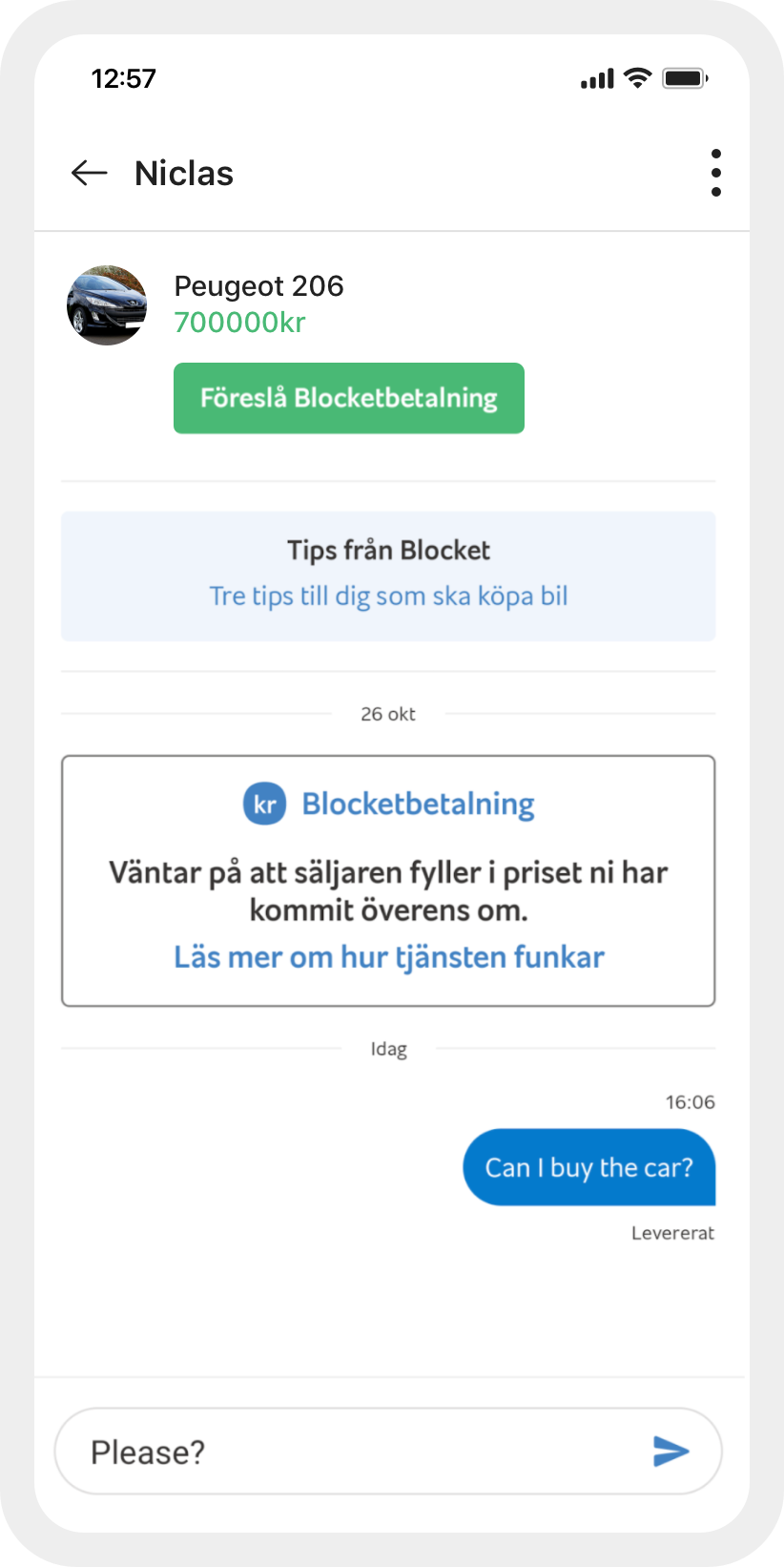
We were able to give Blocket the core chat functions they needed to run a thriving marketplace with the right moderation tools to keep their customers safe.
Traveloka, an Indonesian travel marketplace, was hit hard by COVID-19. They decided to reinvent their customer experience by bolstering their live stream buying options. In November, they held an epic travel sale that live-streamed to over one million people.
This event featured travel partners, hosts, and celebrities on the live stream interacting with customers and travel enthusiasts in the live chat. The event witnessed a 70X increase from last year.
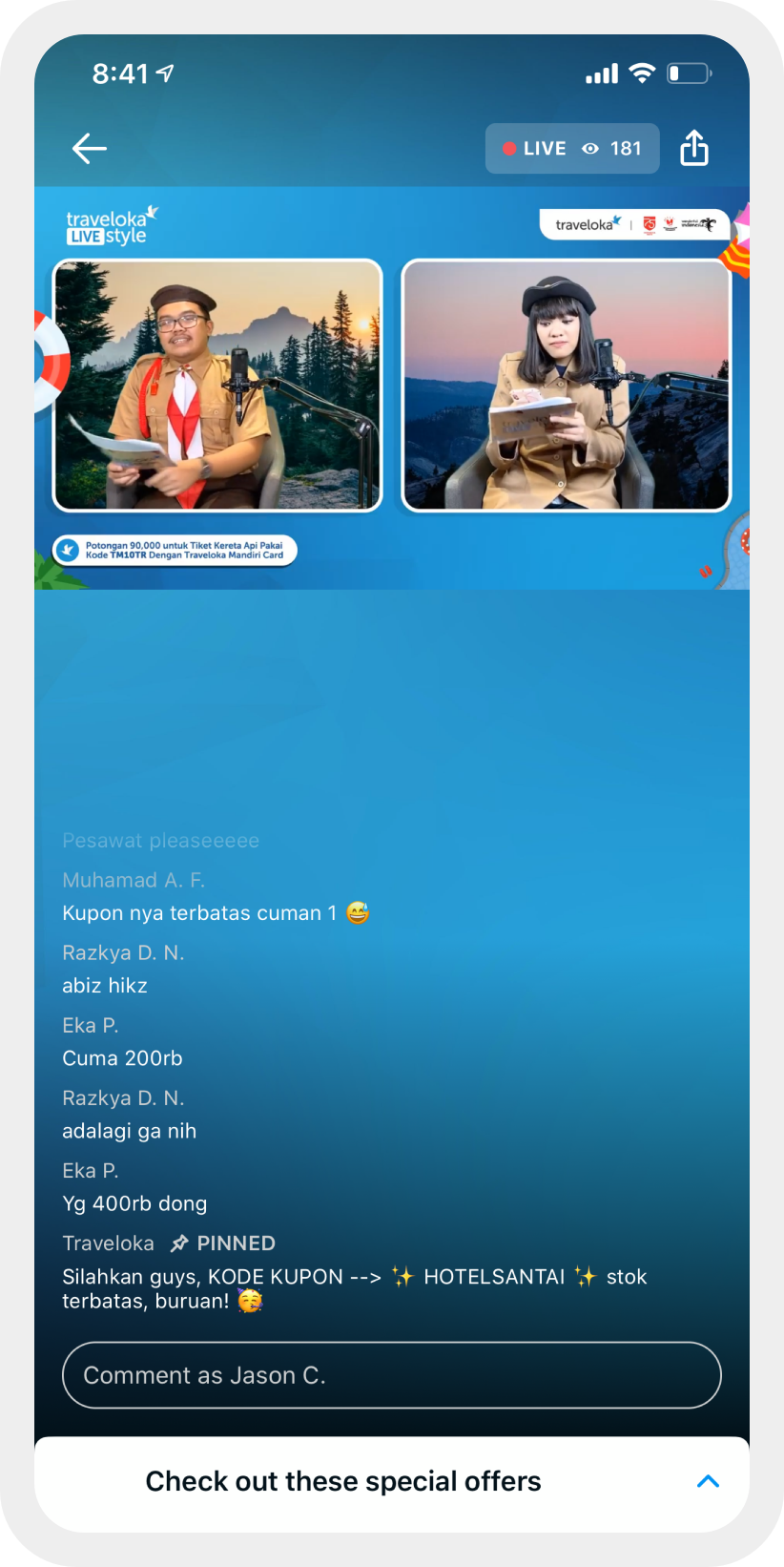
Traveloka used Sendbird to facilitate their live stream chat, and in doing so, increased engagement in the app and increased consumer interest in travel options, ultimately boosting sales.
Sendbird’s mission is to build connections in a digital world
Sendbird helps improve customer experience and build connections between your users through rich in-app chat, voice, and video interactions on top of your platform. It’s available as a service over an API, saving you developmental time, risk, and money.
We have over 110 million monthly chat users, with 1.7 billion users per month. We like to joke that we’re the largest chat platform you’ve never heard of.
There’s a significant difference between what we do and what a platform like WhatsApp does. Facebook owns WhatsApp.
When a company uses WhatsApp for their e-commerce transactions, Facebook owns the conversation, experience, functionality and platform. Recent updates to WhatsApp’s data privacy policy make this clearer than ever. The data WhatsApp will share with Facebook includes things like your customers’ phone numbers, status updates, group details, profile pictures, about info, payments, transactions, time zone and IP addresses.
We’re a chat platform without a prescribed UI (though you we do offer an optional Sendbird UIKit ). Fundamentally, the UI is your UI. The experience is your experience. It is chat integrated into your application and website. You own the data, website, experience, functionality, and most importantly, the customer experience.
You can decide exactly how your chat platform looks and functions, allowing complete autonomy and control of the CX. That level of freedom is critical in today’s rapidly evolving customer experience ecosystem.
Take control of your customer experience today. Get started with our free trial.










